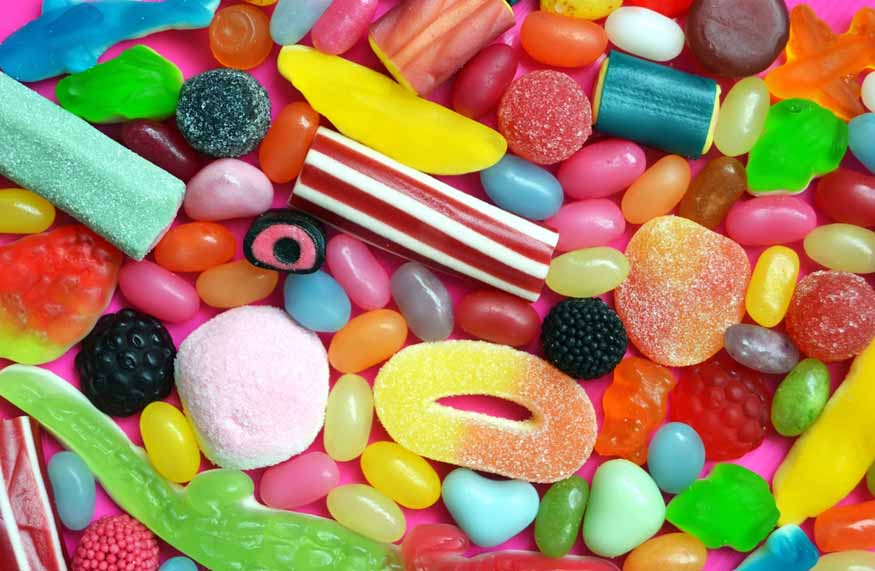Is Sugar Bad for Kids? This is a very debatable topic. That occasional ‘sweet treat’ you might give your child as an incentive or simply because you’re in a good mood, needs some serious rethinking. That ‘sugar high’ we are aware of, is the least of your concerns.
It’s important to separate emotions and environmental influences from eating decisions. This is perhaps the only way you can teach children to listen to their internal hunger cues and partake in well-balanced meals. Oh, and lest we forget, in that ‘strictly occasional’ sweet treat, too.
Although eating sweets on occasion is unlikely to cause problems in the short term, early childhood is the time you want to start encouraging healthy eating habits. However, it is important for parents to understand that sugar suppresses the immune system of children.
One needs to strike the right balance, between being overly restrictive when it comes to what their child eats, and letting them eat just about everything.
8 Harmful Effects of Sugar on Children
Have you ever asked yourself, ‘Is sugar bad for kids?’ during special occasions such as birthdays, festivals, or even in everyday life. For the sake of the good health of our children, we must steer them clear of sugar. Here’s a list of reasons why.
- The Risk of Obesity
- Weakened Child’s Immune System
- It Weakens their Eyesight
- Interlinked with Asthma in kids
- Causes Food Allergies in children
- Causes Learning Disabilities in kids
- Lowers Concentration Levels and makes them Hyperactive
- Tummy Troubles
Many parents turn a blind eye to obesity in kids, thinking they will simply ‘work it off’ in the years to come. It is essential to understand sugar’s impact on health.Obesity puts a child at risk for developing high blood pressure, elevated cholesterol levels and type 2 diabetes (where the body’s response to insulin is not regulated. Moreover, sugar suppresses the immune system which can increase the risk of diabetes by negatively impacting insulin control processes in your child’s body. Further, the rapid increases and decreases in blood sugar can lead to mood changes. Depression, too!
Sugar is known to suppress the immune system. This means that your little one can be susceptible to all kinds of infections like colds, the flu, etc.
Tip: You might want to replace the sugar present in foods you serve your children with honey. This is a great natural food that’s laced with immunity-building nutrients.
“When placed in a healthy food environment, most kids regulate their consumption based on internal hunger signals. Instead of offering treats as a reward (or withholding them as punishment), caregivers should encourage children to pay attention to how their bodies feel. Eating slowly, stopping when full, and not calling foods “good” or “bad” are useful ways to develop a positive relationship with food.”
Elizabeth Hartney, Sarah Rahal, M.D
If your child is consuming a lot of sugar, it will increase their blood sugar and cause the lens of the eye to swell up, thereby impairing their ability to see. Therefore, it is crucial to be aware of sugar’s impact on health.
Tip: Chuck that sugar. Instead, let your children eat foods like avocados, eggs and broccoli. These foods contain nutrients like zeaxanthin and lutein, that are great for eye health.
There is plenty of research to indicate that an increase in asthma in kids is linked to a greater sugar intake. This is because a heavy diet of sugar can provoke an immune system-induced allergic inflammation in the airways, thereby causing the narrowing of the airways and producing asthma symptoms.
You might think, ‘Who doesn’t have some sort of allergy or the other?’ The harsh reality is, a serious allergy that is mixed in with sugar-laced foods, might provoke a worse allergic reaction called anaphylaxis, which might prove to be fatal.
Did you know that sugar suppresses the immune system and makes children vulnerable to contact with viruses and infections?
As if damage to the body isn’t enough, kids whose diets are high in refined sugar and saturated fats, can be prone to damage to the hippocampus region of their brains. That makes for bad news, because this is the region of the brain that affects memory and learning. Refined sugar can cause damage to this and other parts of the brain, and this can lead to poor cognitive functioning.
That ‘Sugar High’ we touched upon earlier? It is accompanied by low concentration levels and crankiness, too.
Tip: Pack a banana in their lunch box. It might be sweet but it’s natural sugar that’s good for your child. Besides, it will keep your child alert throughout the day because of the potassium it contains.
Is your little one’s tummy troubling them time and again? Sugar might very well be the culprit, causing problems like an acidic digestive tract and indigestion, too. Moreover, excessive sugar intake in children causes dental problems that impacts their health negatively.
Does eating sugar cause diabetes in kids? This is perhaps the question you’ve been seeking the answer to, all the while. The answer is a resounding ‘Yes!’

4 Ways Sugar Overload Can Cause Diabetes in Kids
There are several different ways sugar can cause diabetes in kids.
- It hits the insulin receptor system and causes insulin resistance
- It has a toxic effect on nerve cells in the gut. This can spark diabetic metabolic effects from the gut to the organs and the brain.
- It is toxic for the nerve cells in the brain, causing a central insulin resistance from the brain to the liver and pancreas.
- It creates high levels of insulin. The resulting hyperinsulinemia causes inflammation and insulin resistance, too.
Therefore, parents must play an important role in managing sugar intake in children to improve their overall health.
5 Sweet Sugar Facts for Kids
If we are concerned about the health of our children, we must do everything we possibly can to learn more about the food that goes into their systems.
Presenting some cool sugar facts for kids that even ‘you’ probably don’t know.
- Sugar is not all that bad
- Brown Sugar Trivia
- It’s found in several products
- Sugar from Beets
- Count that sugar!
Sugar might have a terrible reputation, but a modest amount of sugar in children’s diets is necessary for healthy brain development and for providing energy to them, too.
Brown Sugar is sugar that has been mixed with molasses. Demerara sugar, a light-brown sugar, is typically used by English folk.
We mistakenly think that sugar is only found in things like candies and cookies. The truth is, sugar is also found in things like cereals, ketchup and bread!
We all know sugar comes from sugar cane. However, farmers in Washington and other cooler American states, grow sugar beets. There are factories nearby that process these beets and turn them into sugar.
Twenty-five grams of sugar equals around 100 calories. Some adults consciously choose to consume no more than 30 grams of sugar a day. These are some of the facts that help parents understand the impact on sugar on children’s health.
Conclusion
Eating sweets occasionally may not harm your child’s health, however, it is likely to cause problems if you go overboard with giving sugary food items to your kid. On that note, we have covered eight harmful effects of sugar on children and four ways sugar overload causes diabetes. The article also covered facts on sugar so that you can improve your awareness while providing sugar to your kids. How do you manage to impose sugar restrictions on your child? Please share your valuable thoughts.
There’s a good reason they say, ‘You are what you eat.’ At EuroKids we strongly recommended that you limit your child’s daily sugar intake. After all, as with anything, too much sugar during childhood may lead to unhealthy cravings in their later years.
References
https://www.verywellfamily.com/is-too-much-sugar-harmful-to-kids-22337
For informative and accurate articles on all things related to your newborn-toddler’s development, growth, health and nutrition, follow EuroKids Blogs and do check out our nationally recognized preschools – EuroKids for the first step in your kid’s educational journey!














